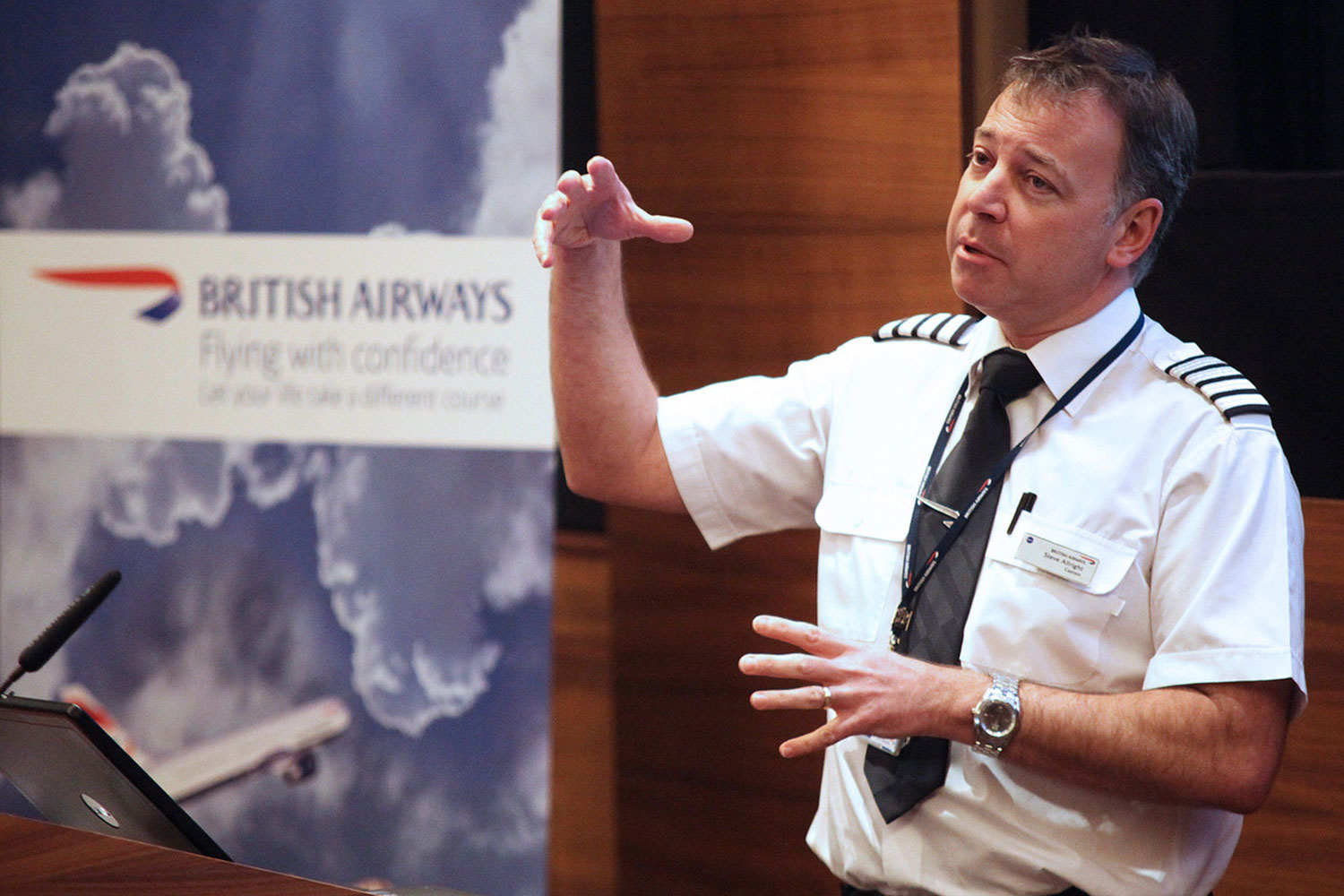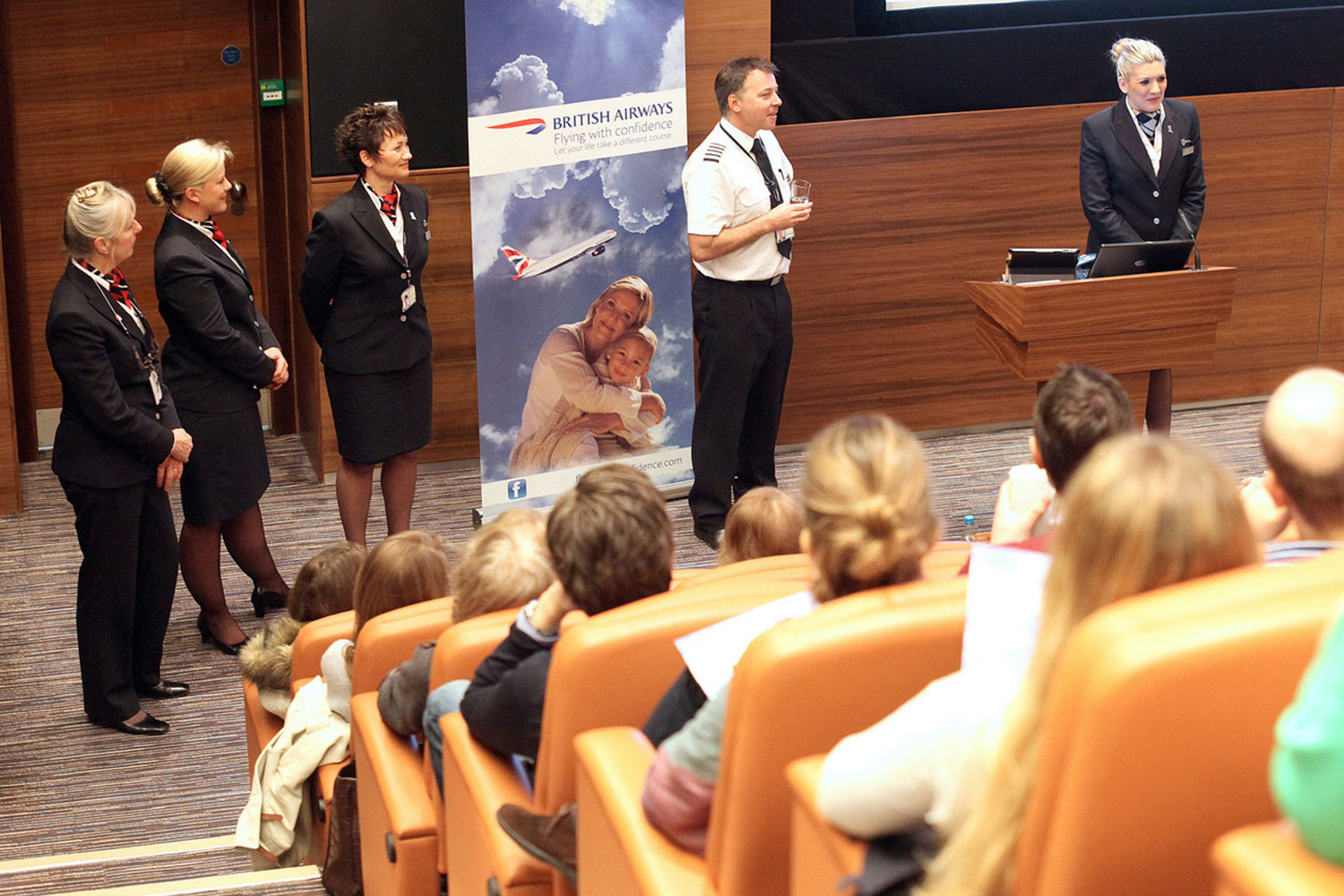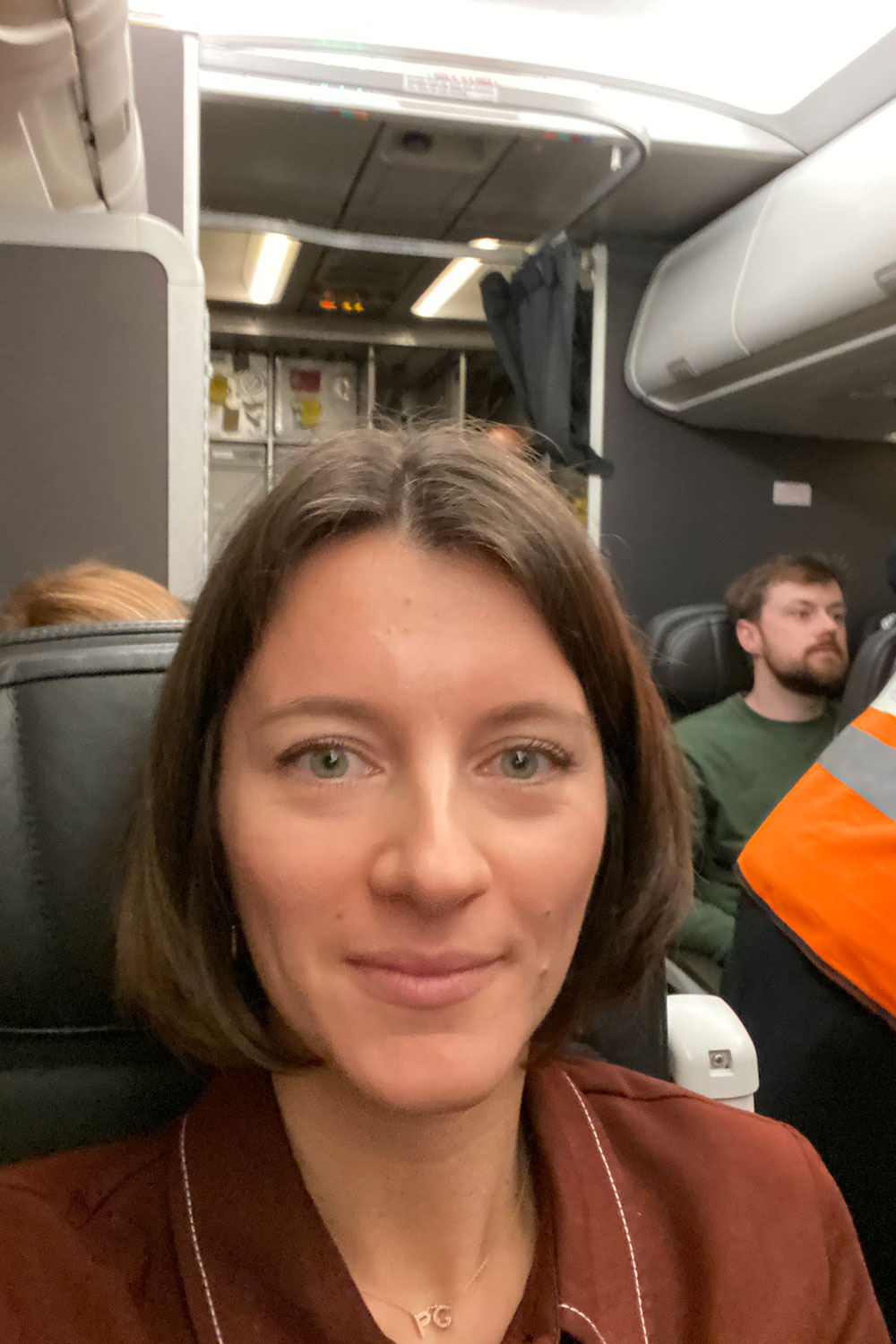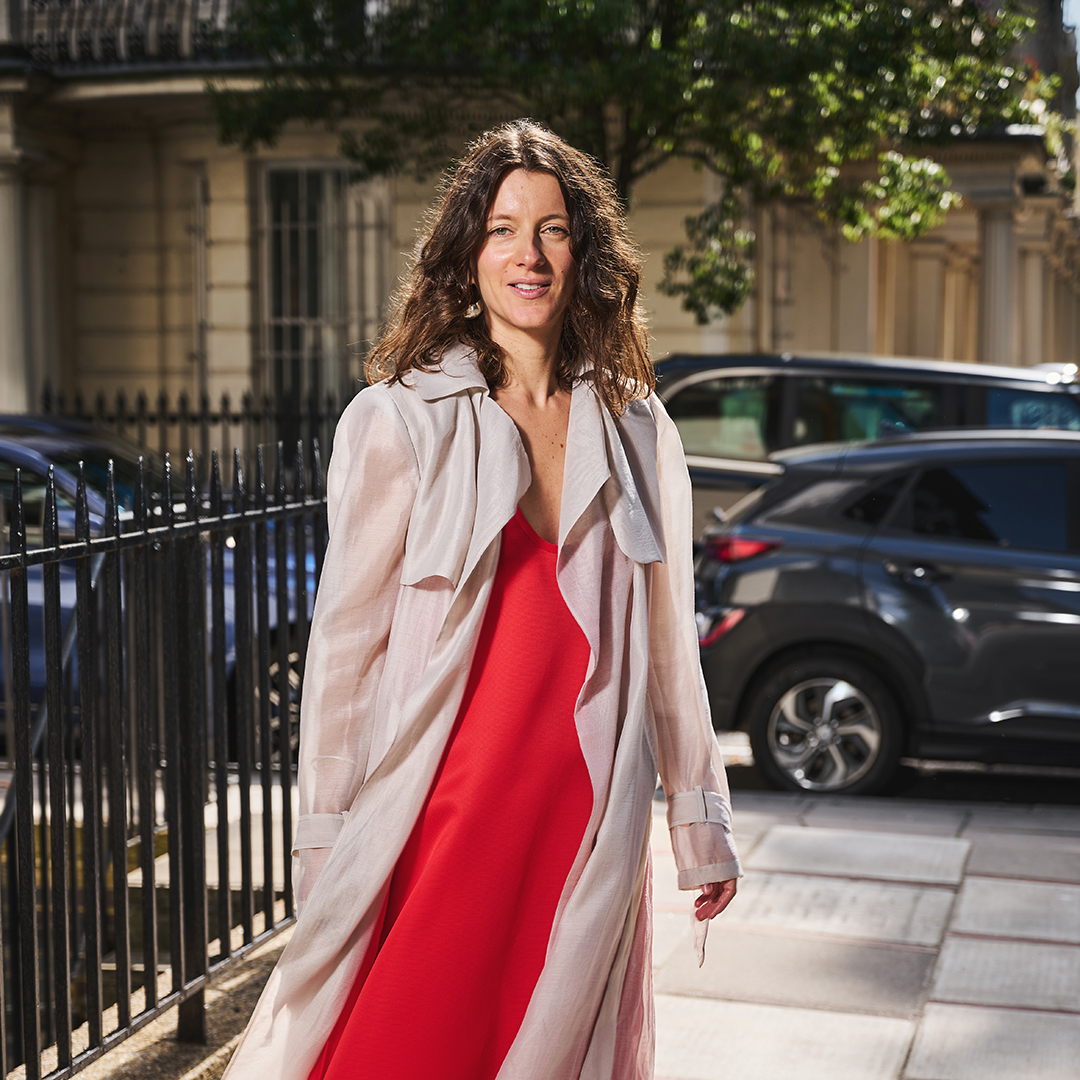I have an extreme fear of flying and this course helped me


Celebrity news, beauty, fashion advice, and fascinating features, delivered straight to your inbox!
You are now subscribed
Your newsletter sign-up was successful
'I can't get on the plane, I just know it's going to crash and we're all going to die, I just know it.'
That was me earlier this year, when my fear of flying turned into a full blown panic attack in the middle of the South Pacific Ocean. After several Google searches which confirmed travelling back by boat from French Polynesia to the UK just wasn't viable (unless work was willing to extend my leave by a few weeks), I saw a doctor who prescribed some anti-anxiety medication.
This, paired with a hefty amount of red wine, many tears and much hand crushing (sorry husband), allowed me to manage the very long two flights back. I had always been a nervous flyer, but got a little better thanks to a lot of travel through work, before suddenly getting worse again.
The thing is I didn't want my crippling fear to stop me from going on holiday, or going on important work trips, so I decided to try CBT (which helped a little), and then the British Airways Flying With Confidence, which had been recommended by a few people.
The course was founded and is still run by BA pilot Captain Steve Allright and his team, and lasts a full day. Here's what to expect.

Who should go on the flying course
Throughout the day, you are encouraged to chat to fellow passengers, as well as cabin crew, to share your experiences and fears. This taught me that aerophobia can hit anyone, at any time, and that it really does help to talk about it. I spoke to a 60-something year-old woman who had never been on a flight, but wanted to attend her son's wedding in Japan early next year.
Another woman, like me, suddenly developed anxiety and a fear of flying which affected her relationship with her partner. One businessman flew so much that he was a Gold member, yet hated every minute of it. Another lady needed to relocate to Australia, where her husband was already, and was too scared to take the long flight.
Celebrity news, beauty, fashion advice, and fascinating features, delivered straight to your inbox!
This weirdly reassured me, as I realised that more often than not, I'm not the only one on the plane who's scared (a quarter of people are affected), and that there is often someone worse off than you.
Fear of flying course
The day is split into three parts, with regular breaks including lunch.
Session 1: The first session is conducted by two pilots, who explain everything there is to know about how planes work (knowledge is power, and in this case it really is true).
Not give away too many spoilers, but there were several things that pilots Steve and Jay said that reassured me no end. Firstly, Steve said that being on a plane is where he feels safest, that for him it's just a regular day in the office. Secondly, I learned that flying is the most regulated profession in the world. All pilots are retested and retrained in a flying simulator every six months, to make sure they can deal with any emergency imaginable. They are also evaluated psychologically, and are still payed even if they have to take time off due to say, a depression, meaning there is no point in them lying about it.

Lastly, it is that nothing is left to chance. From extra engines to wing testing and even air traffic control and fuel, every tiny aspect of the plane is tested and planned for. If an engine fails, there is one to take over, if two engines fail (which never happens) then the plane can still glide on its own for several hundred feet. And wings will NEVER break off during turbulence.
Understanding turbulence
When Steve asked the room who was afraid of turbulence, practically everyone raised their hands. He then goes on to explain what causes turbulence, from jet streams to storm clouds and surface wind, or a slight air disruption caused by a jet taking off before yours. He introduces us to what will become our mantra: 'Turbulence is uncomfortable, but it is not dangerous'. Throughout the day, we repeat this aloud, and it's something that many of us will keep repeating to ourselves any time we experience it.
How to deal with anxiety or panic attacks on a plane
Session 2: The afternoon session is held by a psychologist, who explains what causes our brains to panic, and how we can combat anxiety and relax. The thing is flying is still a very unnatural thing for humans to do, so that's where the panic comes from, and is often couple with claustrophobia. We are taught mindfulness and breathing techniques to help.
If you tend to catastrophise, visualise the positive outcome of the flight. If you find yourself panicking, think of something to distract yourself (one nervous flyer imagined he was on a purple pillow dangling from a piece of gold rope). It's also important to occupy yourself, be it with a book or tv show.
As for breathing techniques, try breathing in for four seconds whilst clenching your buttocks, then breathing out for four seconds and releasing your muscles. Repeat this until you start relaxing.

The flight
Session 3: The final session of the day is an actual 45-minute flight (we flew from Heathrow to Portsmouth and back), accompanied by the entire crew. Surprisingly, every single person on the course managed to board the plane, survived (of course!) and walked off the plane with a big smile on their faces.
During the flight, we were encouraged as much as possible to walk around and experience the flight properly. It was actually quite a turbulent one (though we were told that was nothing, it always seems worse in the main cabin), but I weirdly wasn't scared, because Steve kept a running commentary of what every sound was. I learned that we were simply going through a rain cloud and that it was totally normal.
The crew were incredible, holding the hands of the more nervous flyers, reminding them to do their breathing exercises, and telling us what a good job we were all doing.
One big takeaway for me was that there is no shame in being afraid of flying, and that it's always worth telling the crew when you board, as they'll always be more than happy to check in with you regularly.
How to book the course
British Airways Flying With Confidence courses run from various airports across the UK throughout the year. Book in advance from £249.
Does the fear of flying course work?
The short answer is yes, but it's important to realise that it's not a magical solution. What you leave with are the foundations which will help you get better with flying over time. I actually had to get on a flight just a few days later, and for the first time I didn't cry at take off. I remembered to breathe and recognised what some of the noises meant.
As long as you carry on working on this, you will be fine, and perhaps stick to short flights until you feel more confident.

Penny Goldstone is the Contributing Fashion Editor at Marie Claire UK. She writes about catwalk trends and the latest high street and Instagram sartorial must-haves. She also helms the Women Who Win franchise.
She has worked in fashion for over 10 years, contributing to publications such as Cosmopolitan, Red, Good Housekeeping, and Stylist.